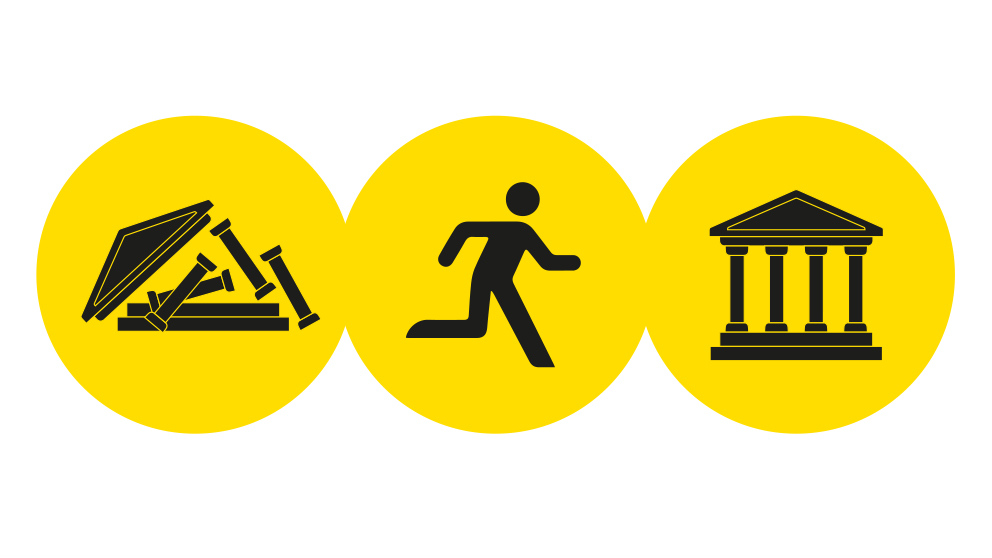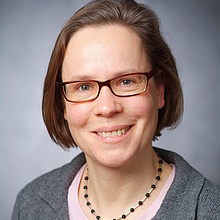

Kontakt
Presse, Kommunikation und Marketing
Tel.: +49 228 833-144
Fax: +49 228 833-441
presse[at]avh.de
Meeting in Bonn, the science ministers of the European Union’s Member States adopted a Declaration on the Freedom of Scientific Research on 20 October. The Alexander von Humboldt Foundation supports this concerted effort, along with the other members of the Alliance of Science Organisations in Germany. Freedom of research is a key issue for the Foundation with its network of more than 30,000 individuals it has sponsored worldwide.
The Bonn Declaration adopted by the EU science ministers offers an opportunity to highlight the Foundation’s activities in this connection. An interview with Barbara Sheldon who is responsible for the Philipp Schwartz Initiative at the Foundation.
Humboldt Foundation: What is the Humboldt Foundation doing to strengthen freedom of scientific research?
Barbara Sheldon: For years now, the Foundation has been concretely engaged in helping researchers at risk, such as researchers who come from countries where war is raging, whose freedom of scientific research is restricted or who are personally persecuted: The Philipp Schwartz Initiative helps researchers who have fled their native countries gain a foothold at German universities and research institutes. This programme was established in 2015 by the Humboldt Foundation together with Germany’s Federal Foreign Office. The Foundation works closely with international partners such as the Scholars at Risk Network, the Scholar Rescue Fund and the Council for At-Risk Academics to protect scientists who are at risk.
Ms. Sheldon, when you look back at the work done by the Philipp Schwartz Initiative over the last five years, what do you see?
With the Philipp Schwartz Initiative we are sending a sign of hope and providing clear affirmation that here in Germany we stand up for freedom of scientific research. The symbolic effect of this programme is not to be underestimated – coming from a country that itself drove away scientists during the Nazi terror regime. Naturally, we also help on a practical level.
What does this help look like?
We grant funding to German universities and research institutes that puts them in a position to finance two-to-three year stays by foreign researchers and offer them a safe haven for making a new start in Germany. And going beyond this, some 40 German institutions are additionally involved in the international network Scholars at Risk for which the Humboldt Foundation provides the German secretariat. We are very grateful to the German Foreign Office – as well as our private donors – for providing financial support for the Philipp Schwartz Initiative.

What happens next for these fellows once their sponsorship comes to an end?
It is important that plans are made, right from the very first day of a recipient’s fellowship, for the time following the end of the two- or three-year sponsorship. The respective Philipp Schwartz Fellow’s research host plays a key role in this connection.
In what way?
For example, by mediating suitable advanced training or acting as a ‘door opener’. Where the Humboldt Foundation is concerned, we additionally make separate funding available for career development measures. In the meantime, the sponsorships of the first cohorts are coming to an end. We are very pleased that 60 per cent of these individuals have found follow-on employment that starts immediately after their fellowship ends. Together with our host institutions and partner organisations we search for ideas and ways to increase the size of this share even further.
What success stories could you share with us?
I was particularly impressed by the case of a Syrian geography professor who fled the armed conflict there and came to Germany to his former doctoral supervisor where – with initial support provided by the Scholar Rescue Fund and then by the Philipp Schwartz Initiative – he has been able to gain a foothold in academia. It was his wish from the start to return to his homeland to help rebuild it. With this aim in mind, he established a network in Germany of Syrian researchers in exile who are already preparing themselves for rebuilding their country. Since it is still not possible for him to return, he has accepted a professorship in another – safe – country in the MENA region.
Or there’s the story of a Turkish political scientist who – like so many other researchers – had to leave his native country in 2016 for political reasons. He found refuge at a German university and has been focusing on his professional and personal future with the help of his academic mentor and many other members of his host institute. Today he is a postdoc and is contributing his professional and regional expertise to a German think tank.
